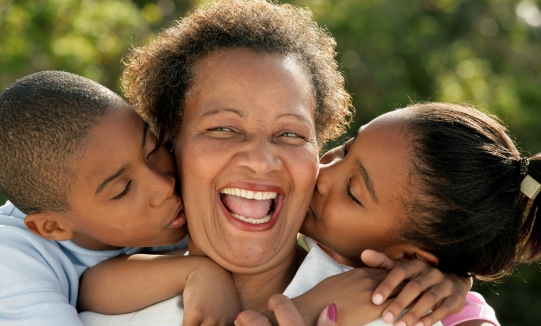Get involved and become a safety parent
The Department of Social Development recognises the family as the best place for a child to flourish and develop, but there are instances where the child’s best interest is the immediate removal from their homes.
Safety parents offer temporary care to vulnerable children in need of care and protection. They act as a safety net for children, while initial court proceedings and child protection investigations are underway.

Johmina Armoed, a safety parent from Avian Park in Worcester, has welcomed vulnerable children into her home for the past 18 years.
Armoed herself grew up in the foster care system, so becoming a safety parent was a natural next step for her. Armoed had been placed with her foster parents at the age of two and was always treated with love and compassion.
“The love I received from my foster parents led me down this path. They opened their home to me and never treated me any differently, because of their generosity and unwavering kindness, I decided to follow in their footsteps” she adds.
Armoed says that the work she does is not easy. Avian Park is an informal settlement that grapples with all kinds of social ills. The community is faced with high levels of substance abuse, unemployment and crime.
“Knowing that I can make a significant difference in children's lives brings me joy and peace. Currently, I have six children in my care and I always strive to make them feel safe and loved during their time with me.
“The only thing the children need is love and care. They want somebody who is going to make them feel better and tell them everything is going to be okay,” says Armoed.
She says more people are needed to act as safety parents in their communities.
The Department of Social Development’s safety parent recruitment is ongoing.
There are many reasons and circumstances when a child may have to be removed from their parents such as suspected abuse and deliberate neglect. Some children are also orphaned or abandoned.
In situations where children need alternative care, it is always best to place them with within a family system. When placed with safety parents, they can receive individual care and stimulation in a family environment.
“Opening our hearts and homes to these young ones may make a big difference in our communities, as it truly takes a village to raise a child. I urge everyone who is interested in helping children to please partner with the Department and open their homes and become safety parents,” Armoed concludes.
What is a safety parent?
A safety parent is a fit and proper person, over the age of 18 years, who takes temporary care of no more than six children, except where the children are siblings.
If you've a passion to help children and are interested in partnering with the Department of Social Development by opening up your home to care and safeguard vulnerable children, you can volunteer to become a safety parent.
How to become a safety parent
Prospective safety parents must:
- have an interest in the wellbeing of a child at risk;
- have a police clearance and a Form 30 notification – this applies to all the adults residing on the premises of the applicant(s);
- have a Form 39 approval from the DSD to provide temporary safe care.
Due to the nature of the emergency placements, prospective safety parents should be available at any time and at short notice.

What happens after I have applied to become a safety parent?
Applicants are carefully screened to determine if they're suitable to care for children. Once approved, the safety parent will receive training on the Children’s Act, roles and responsibilities of safety parents and how to care for vulnerable children who may have experienced trauma.
Once the placement of a child is finalised, safety parents are given an emergency kit (e.g. in the case of a baby, nappies and formula milk) and a basic daily fee towards the care of the child.
The Western Cape Minister of Social Development, Sharna Fernandez said, “Only a whole of society approach, through the efforts of all spheres of society, can put a stop to the acts of violence being witnessed and experienced by our children.
I would like to urge everyone to continue helping us in our fight against child abuse and neglect.
It takes a community to raise a child. Let’s unite to protect our children.”
Contact information and support:
To sustain its pool of safety parents in the Province to provide this crucial service, the Department invites interested persons to volunteer to contact their nearest DSD local office or contact the DSD hotline on 0800 220 250.
Furthermore, if you suspect a child is being abused, neglected, or exposed to violence, we urge you to report it to the following channels:
- Calling the Western Cape Department of Social Development toll-free: 0800 220 250
- Calling the SAPS crime stop hotline: 10111
- Calling Childline: 116; or
- Calling Child Welfare SA: 0861 424 453


